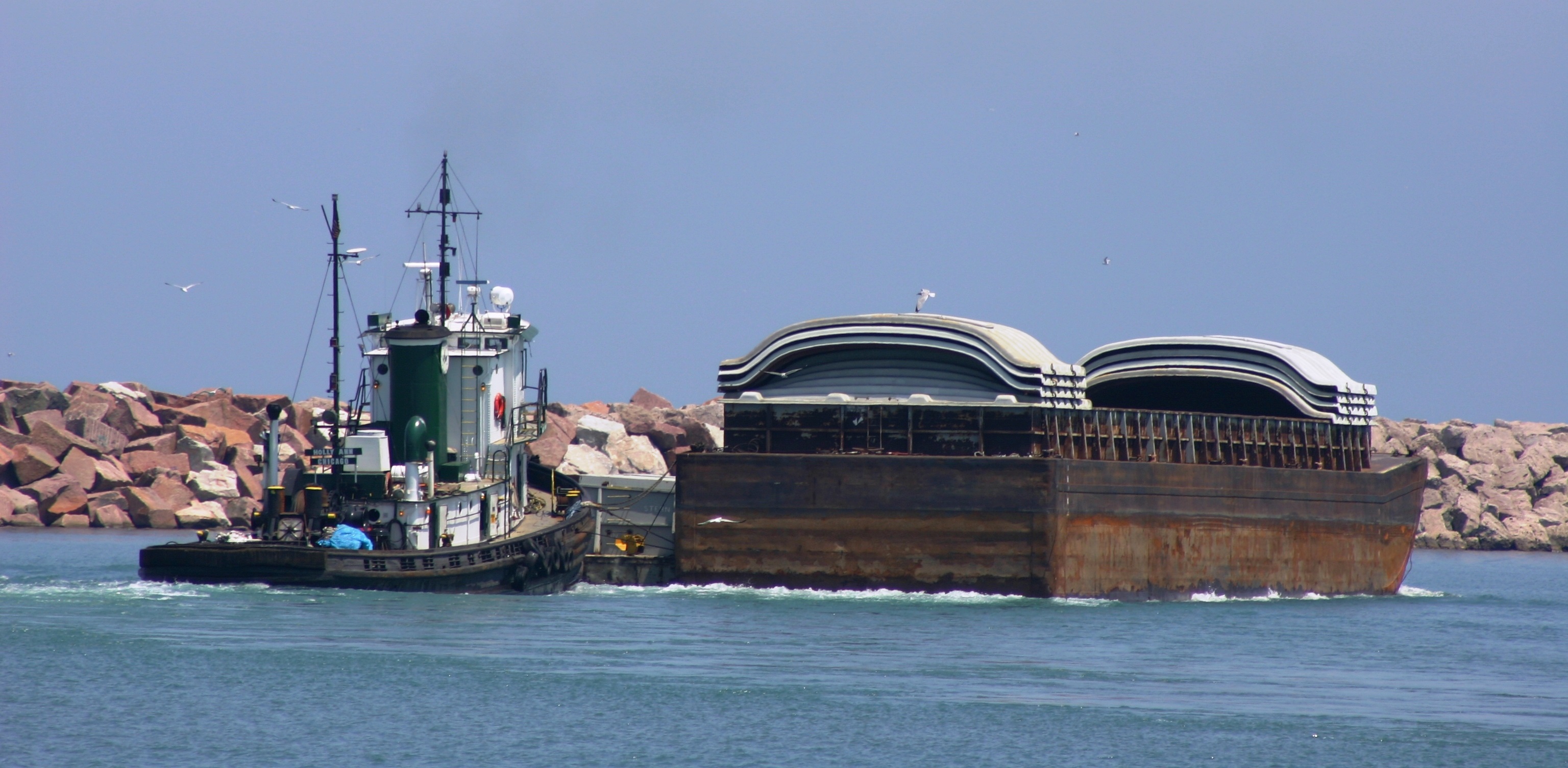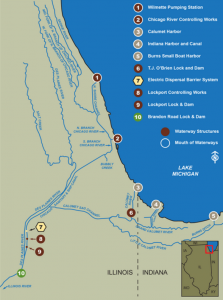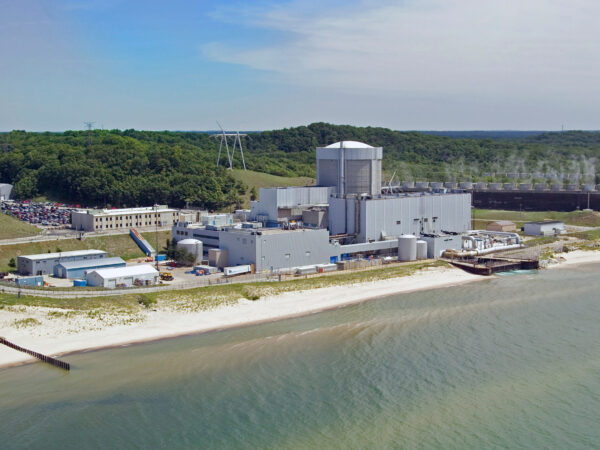
“What will we do for future generations?”
Business interests, conservation groups and government officials lined up in Chicago Monday to tell the Army Corps of Engineers what they thought of the Corps’ latest plan to deal with Asian carp.
Barge operators represented by American Waterways Operators (AWO) minced no words in objecting to the plan.
“Right now we’re looking for a solution for a problem that’s not there” Lynn Muench told Great Lakes Now in a pre-meeting interview.
Muench said the Asian carp “population front hasn’t moved in 25 years” and repeated those words in her public comments to the Army Corps.
Muench is VP of Advocacy for AWO representing tug boat and barge operators. AWO’s website says barge traffic is “the safest, most environmentally friendly and most economical mode of freight transportation.”
The plan, known as the Brandon Road Lock study, proposes a suite of actions including an additional electric barrier, an engineered channel and complex noise thought to be a carp deterrent.
The price tag is $275 million with a non-federal source – likely Great Lakes states – left to pick up $96 million of that plus $19 million in ongoing annual maintenance costs. If implemented, the plan would be operational in 2025.
AWO supports the state of Illinois’ stance expressed by Lt. Governor Evelyn Sanguinetti that changes to the Brandon Road lock are unnecessary because they are expensive and won’t contribute to a solution. Muench said that’s a “logical” position.
Diverted cargo?

Ian Hirt, Port Director Port of Indiana–Burns Harbor, courtesy of portsofindiana.com
Ian Hirt directs the Port of Indiana in Burns Harbor and he’s concerned that any changes to shipping procedures and infrastructure resulting from the Corps’ plan could have a negative economic impact.
“If cargo is diverted from barges to roads or rail it will create major increases in transportation costs and cause many businesses in Northwest Indiana to become uncompetitive,” Hirt told Great Lakes Now.
“This would have a significant negative economic impact on the Port of Indiana and the country’s largest steel producing region.”
Inadequate safeguards concern Michigan
Michigan’s DNR Director Keith Creagh made the trip to Chicago and expressed appreciation for all the work done to date to keep Asian carp out of the Great Lakes.
But Creagh told the Army Corps that “the recent finding of a silver carp in the Chicago Area Waterways System just nine miles from Lake Michigan dramatically underscores that current safeguards are inadequate.”
Creagh said the Corp’s Brandon Road plan is a “step in the right direction” but objected to the timeline that calls for full implementation in 2025. Creagh said “we cannot wait until 2025 for action” and he wants technologies like complex noises to be implemented now.

Keith Creagh, Director Michigan Department of Natural Resources, courtesy of michigan.gov
He told Great Lakes Now that Illinois has “great experts who are working very hard on the issue” but said it’s “irrefutable that the leading edge of invasive carp continues to migrate towards Lake Michigan.”
Creagh said the question is “what will we do for future generations?”
He called on all concerned parties including industry, boaters, anglers and conservation groups to work to develop solutions to protect “our way of life in the Great Lakes.”
Angela Ayers from Michigan Gov. Rick Snyder’s office told the Corps that Snyder supports the work to date on the plan and said “we urge other Great Lakes states and provinces to join us in providing support.”
Great Lakes Now asked Ayers if Gov. Snyder has reached out to Illinois Gov. Bruce Rauner to discuss Asian carp given Illinois’ hard stance against the Army Corps’ plan.
Ayers said she didn’t know but indicated she “wouldn’t be surprised if it would happen in the near future with the timing of the plan and the need for everybody to work together….”
Illinois did not comment on the Corps’ plan at the Monday meeting.
Dan Injerd directs Illinois’ Office of Water Resources and he attended the meeting. Injerd told Great Lakes Now that previous statements by Lt. Gov. Sanguinetti represent Illinois’ position.
Status quo not an option
The National Wildlife Federation’s Marc Smith told Great Lakes Now that the Army Corps’ plan “look promising” by forcing carp to “run the gauntlet” of deterrents before arriving at the Brandon Road Lock.
But Smith said the “we are in a very urgent situation right now as a live carp was recently caught just nine miles from Lake Michigan, above the current electrical barriers.”
Smith said doing nothing is not an option and that the federal government should pay the full cost of stopping the advancing carp.
“This is a national crisis that demands a full federal response,” Smith said.
Public comment sessions continue in Muskegon on Thursday and in Joliet, Illinois on Monday, September 18th.
The Army Corps announced on Monday that it extended the deadline for comment by 45 days until the first week of November.
Any action on the plan would have to by authorized and funded by Congress.





